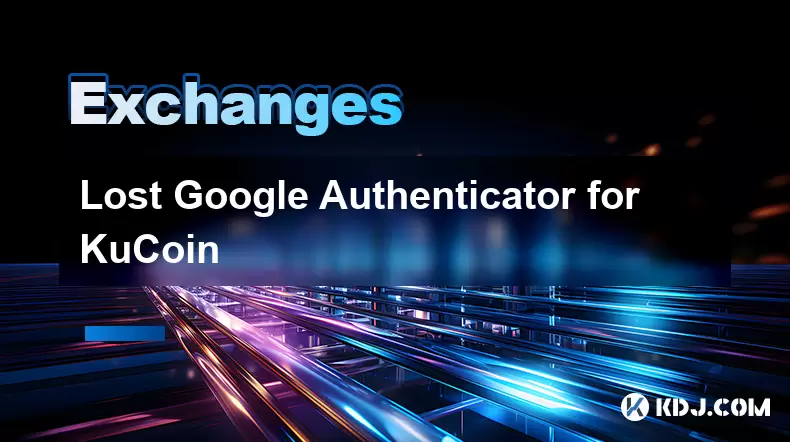-
 Bitcoin
Bitcoin $118100
0.44% -
 Ethereum
Ethereum $3765
5.84% -
 XRP
XRP $3.498
3.12% -
 Tether USDt
Tether USDt $1.000
0.00% -
 BNB
BNB $753.2
3.41% -
 Solana
Solana $181.7
3.58% -
 USDC
USDC $0.9999
0.01% -
 Dogecoin
Dogecoin $0.2704
12.75% -
 Cardano
Cardano $0.8684
5.85% -
 TRON
TRON $0.3151
-0.86% -
 Hyperliquid
Hyperliquid $46.06
4.51% -
 Stellar
Stellar $0.4695
2.48% -
 Sui
Sui $3.910
3.18% -
 Chainlink
Chainlink $19.36
6.65% -
 Hedera
Hedera $0.2750
3.99% -
 Bitcoin Cash
Bitcoin Cash $544.6
6.31% -
 Avalanche
Avalanche $25.12
3.69% -
 Shiba Inu
Shiba Inu $0.00001559
5.40% -
 Litecoin
Litecoin $116.8
5.10% -
 UNUS SED LEO
UNUS SED LEO $8.991
0.05% -
 Toncoin
Toncoin $3.283
2.79% -
 Polkadot
Polkadot $4.509
3.97% -
 Uniswap
Uniswap $10.67
6.58% -
 Ethena USDe
Ethena USDe $1.001
-0.01% -
 Monero
Monero $323.2
0.48% -
 Pepe
Pepe $0.00001410
6.37% -
 Bitget Token
Bitget Token $4.964
1.93% -
 Dai
Dai $0.9998
-0.01% -
 Aave
Aave $326.2
3.85% -
 Bittensor
Bittensor $421.8
2.46%
Is Coinbase safe and legit?
Coinbase is a leading, regulated cryptocurrency exchange offering secure trading, cold storage for funds, and compliance with global financial laws.
Jul 08, 2025 at 09:43 pm

What Is Coinbase and How Does It Operate?
Coinbase is one of the most recognized cryptocurrency exchanges globally, offering a platform for users to buy, sell, trade, and store various cryptocurrencies. Established in 2012, it has grown significantly and now serves millions of users across more than 100 countries. The platform supports major digital assets such as Bitcoin (BTC), Ethereum (ETH), and Litecoin (LTC), among others.
Coinbase operates under a structured framework that complies with financial regulations, particularly in the United States where it is headquartered. It holds a New York State Department of Financial Services BitLicense, which is a significant regulatory endorsement. This compliance contributes to its legitimacy in the crypto space. Additionally, Coinbase maintains transparency through regular financial disclosures and public reports, further reinforcing its credibility.
The company also offers Coinbase Wallet, a non-custodial wallet service that allows users to have full control over their private keys. This distinction between the exchange and wallet services ensures that users can choose how they manage their digital assets securely.
Security Measures Implemented by Coinbase
Security is a top priority for any cryptocurrency exchange, and Coinbase has implemented robust measures to protect user funds and data. One of the core security features is cold storage, where the majority of user funds are stored offline in secure vaults. Only a small percentage of assets are kept in hot wallets for immediate transactions, reducing exposure to potential breaches.
Two-factor authentication (2FA) is mandatory for account access, adding an extra layer of protection beyond just a password. Users can enable this via mobile apps like Google Authenticator or receive SMS codes. In addition to 2FA, Coinbase employs advanced encryption protocols to safeguard sensitive information and conducts regular security audits.
The platform also maintains an insurance policy that covers losses from hacking incidents affecting its custodial storage systems. This insurance does not cover individual accounts compromised due to user negligence, such as phishing attacks or lost credentials. However, it provides reassurance that institutional-level protections are in place.
Regulatory Compliance and Legal Status
Regulatory compliance plays a crucial role in determining whether a crypto exchange is legitimate. Coinbase is registered with FinCEN (Financial Crimes Enforcement Network) as a Money Services Business (MSB), which requires adherence to anti-money laundering (AML) and know your customer (KYC) regulations. These requirements mandate identity verification for users and reporting of suspicious activities.
In the U.S., Coinbase works closely with regulators and has actively participated in discussions regarding cryptocurrency legislation. It has even taken legal action against regulatory bodies when it believes policies could harm innovation or consumer choice. This proactive approach demonstrates its commitment to operating within legal frameworks rather than evading them.
Internationally, Coinbase adheres to local financial laws wherever it operates. For example, in the European Union, it follows guidelines set by the European Banking Authority (EBA) and collaborates with local regulators to ensure compliance. This global regulatory alignment reinforces its legitimacy and trustworthiness.
User Experience and Customer Support
User experience is another critical factor in assessing the safety and reliability of a cryptocurrency exchange. Coinbase’s interface is designed to be intuitive, catering to both beginners and experienced traders. The platform provides educational resources, price tracking tools, and real-time market data to help users make informed decisions.
For new users, the onboarding process includes step-by-step guidance for setting up accounts, linking bank accounts, and making first trades. This structured approach reduces the likelihood of errors and enhances overall confidence in using the platform.
Customer support is available through multiple channels, including email, live chat, and a comprehensive help center. While response times may vary depending on case complexity, Coinbase generally maintains a responsive support system. Additionally, the Help Center contains detailed articles and troubleshooting guides that address common issues, empowering users to resolve problems independently.
Fees and Transaction Costs on Coinbase
Understanding the fee structure is essential when evaluating the legitimacy and value of a cryptocurrency exchange. Coinbase employs a transparent pricing model, clearly outlining fees for buying, selling, trading, and transferring cryptocurrencies.
For standard purchases and sales via linked bank accounts or debit cards, Coinbase uses a spread-based fee system, typically around 0.5% in addition to other applicable charges. Trading fees vary depending on the volume and type of transaction, with clear explanations provided before confirming any trade.
Withdrawal fees depend on the cryptocurrency being transferred and current network congestion levels. These fees are displayed prior to execution, allowing users to make informed choices. There are no hidden fees, and all costs are disclosed upfront, contributing to the platform’s transparency and trustworthiness.
Frequently Asked Questions
Q: Does Coinbase ever lose user funds?
A: Coinbase has not experienced any major incidents of losing user funds due to internal mismanagement. However, in rare cases where hacks occur, insured funds stored in cold wallets are protected. Individual account compromises usually result from user-side vulnerabilities, not platform failures.
Q: Can I use Coinbase without verifying my identity?
A: No, identity verification is mandatory on Coinbase to comply with KYC and AML regulations. Users must submit valid identification documents to unlock full functionality, including higher transaction limits and withdrawal capabilities.
Q: Are there alternatives to Coinbase that offer similar security?
A: Yes, several exchanges like Kraken, Binance.US, and Gemini also maintain strong security practices and regulatory compliance. Each platform has unique features, so users should compare based on personal preferences and regional availability.
Q: How do I report suspicious activity on Coinbase?
A: If you notice unusual transactions or login attempts, immediately report it through Coinbase’s official support portal. You can also contact customer support directly via live chat or email to escalate urgent concerns.
Disclaimer:info@kdj.com
The information provided is not trading advice. kdj.com does not assume any responsibility for any investments made based on the information provided in this article. Cryptocurrencies are highly volatile and it is highly recommended that you invest with caution after thorough research!
If you believe that the content used on this website infringes your copyright, please contact us immediately (info@kdj.com) and we will delete it promptly.
- Tezos, Conflux, and the Altcoin Rebound: What's Driving the Surge?
- 2025-07-21 14:50:12
- DeFi Evolution: Data Oracles and NFT Integration Leading the Charge
- 2025-07-21 14:30:12
- Super Apps, Stablecoins, and Future Payments: A NYC Perspective
- 2025-07-21 14:30:12
- Cardano (ADA) Price Surges Amid Bitcoin ATH Buzz: What's Next?
- 2025-07-21 12:30:11
- Bitcoin, UK, and Sale: Decoding the Crypto Buzz in Britain
- 2025-07-21 12:30:11
- Ethereum NFT Torch: Celebrating 10 Years of Innovation
- 2025-07-21 12:50:12
Related knowledge

KuCoin mobile app vs desktop
Jul 19,2025 at 08:35am
Overview of KuCoin Mobile App and Desktop PlatformThe KuCoin ecosystem offers both a mobile app and a desktop platform, each designed to cater to diff...

Is KuCoin a decentralized exchange?
Jul 18,2025 at 03:15pm
Understanding Decentralized Exchanges (DEXs)To determine whether KuCoin is a decentralized exchange, it's essential to first understand what defines a...

How to trade options on KuCoin?
Jul 19,2025 at 03:42am
Understanding Options Trading on KuCoinOptions trading on KuCoin allows users to speculate on the future price movements of cryptocurrencies without o...

What are KuCoin trading password rules?
Jul 20,2025 at 07:56am
Understanding the Purpose of a Trading Password on KuCoinOn KuCoin, a trading password serves as an additional layer of security beyond the standard l...

Who is the CEO of KuCoin?
Jul 20,2025 at 09:35am
Background of KuCoinKuCoin is one of the largest cryptocurrency exchanges globally, known for its diverse range of trading pairs and user-friendly int...

Lost Google Authenticator for KuCoin
Jul 19,2025 at 02:35am
Understanding the Importance of Google Authenticator in KuCoin SecurityGoogle Authenticator is a critical tool used by KuCoin users to enable two-fact...

KuCoin mobile app vs desktop
Jul 19,2025 at 08:35am
Overview of KuCoin Mobile App and Desktop PlatformThe KuCoin ecosystem offers both a mobile app and a desktop platform, each designed to cater to diff...

Is KuCoin a decentralized exchange?
Jul 18,2025 at 03:15pm
Understanding Decentralized Exchanges (DEXs)To determine whether KuCoin is a decentralized exchange, it's essential to first understand what defines a...

How to trade options on KuCoin?
Jul 19,2025 at 03:42am
Understanding Options Trading on KuCoinOptions trading on KuCoin allows users to speculate on the future price movements of cryptocurrencies without o...

What are KuCoin trading password rules?
Jul 20,2025 at 07:56am
Understanding the Purpose of a Trading Password on KuCoinOn KuCoin, a trading password serves as an additional layer of security beyond the standard l...

Who is the CEO of KuCoin?
Jul 20,2025 at 09:35am
Background of KuCoinKuCoin is one of the largest cryptocurrency exchanges globally, known for its diverse range of trading pairs and user-friendly int...

Lost Google Authenticator for KuCoin
Jul 19,2025 at 02:35am
Understanding the Importance of Google Authenticator in KuCoin SecurityGoogle Authenticator is a critical tool used by KuCoin users to enable two-fact...
See all articles

























































































